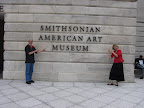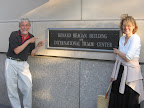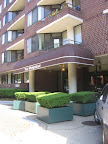AHD - Joseph P. Pickett, Executive editor
MW - Frederic C. Misch, Editor in Chief
The American Heritage Dictionary of the English Language,Fourth Edition, Boston: Houghton Mifflin, 2006, $60.00, 2112 pages, hardcover, ISBN-10: 0618701729This updated edition includes, according to its Web site, revised biographical and geographical entries as well as up-to-date charts and tables for topics such as world currencies and chemical elements. Among the 500 entries new to this update are:
Amber Alert, blogosphere, gravitino, halo effect, hawala, lycopene, malware, micropolis, proteome, Qi Gong, SARS, shout-out, speed dating, sudoku, Texas hold’em, text message, wiki
Wikipedia explains the history of this dictionary, noting that the first edition appeared in 1969. Its creation was spurred by the controversy over the Webster's Third New International Dictionary. James Parton, the owner of the history magazine American Heritage, was appalled by the permissiveness of Webster's Third, published in 1961, and tried to buy the G. and C. Merriam Company so he could undo the changes. When that failed, he contracted with Houghton to publish a new dictionary. The AHD was edited by William Morris and relied on a usage panel of 105 writers, speakers, and eminent persons for usage notes. The AHD made the innovative step of combining prescriptive elements (how language should be used) and descriptive information (how it actually is used).
The AHD is larger than a desk dictionary but smaller than Webster's Third New International Dictionary or The Random-House Dictionary of the English Language. A lower-priced college edition includes monocolor printing.This dictionary can also be purchased with a fully loadable CD-ROM that contains the entire text of the updated Fourth Edition, 68,000 audio pronunciations, 1,000 full-color photographs and illustrations, and a college-level thesaurus with more than 260,000 synonyms. The CD-ROM has spell-check capability and can be used in conjunction with any Microsoft Office application to get definitions at the click of a mouse.
The updated edition does not disappoint. The content is as good as ever, including the most helpful usage notes. The paper version still has the striking illustrations and beautiful packaging that includes the recessed index tabs.
In Slaying the English Jargon (an STC publication), Fern Rook notes that there are many English language dictionaries. The main ones she considers to be the Oxford English Dictionary, the M-W unabridged and collegiate dictionaries, and the AHD. Others, she notes, are the Random House unabridged and collegiate dictionaries and Webster's New World Dictionary (from World publishing). Several others use the Webster name.
Fern goes on to state that most dictionaries do a good job in the four most important functions of spelling, meaning, pronunciation, and syllabification. However, there are differences in other areas that you should consider when deciding on purchase or use of a new dictionary. She cautioned us when pointing out Dr. Samuel Johnson's statement that dictionaries are like new watches: the worst is better than none, and the best cannot be expected to go quite true.
She stated that the M-W unabridged is the most prestigious in the United States, considered to be the authority by librarians and linguists. The appearance of The American Heritage Dictionary was notable in that it was the first to have made the best seller list. M-W dictionaries concentrate on what is widely used. The AHD provides usage guideliens for those who need to find out whether a word is considered to be standard usage. For example, for grub, AHD shows Slang Food in the entry. M-W shows simply food for its entry.
AHD
n.
1. The thick wormlike larva of certain beetles and other insects.
2. A drudge.
3. Slang Food.
M-W
Function: noun
Etymology: Middle English grubbe, from grubben
1 : a soft thick wormlike larva of an insect (as a beetle)
2 a : one who does menial work : DRUDGE b : a slovenly person
3 : FOOD
Fern felt that one of the best features of the AHD is that it lists the most common meaning first, not the historical order, as M-W does. AHD is the most readable dictionary. If you need to know how a word is commonly used, AHD is a good choice. A M-W dictionary or The Oxford English Dictionary is a good choice if you need to know historical information about a word.






















